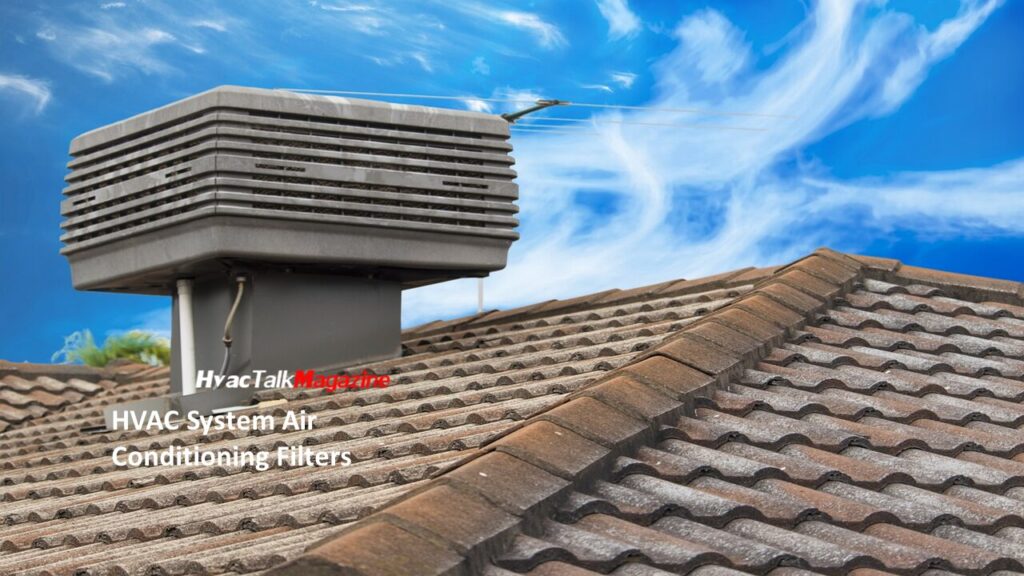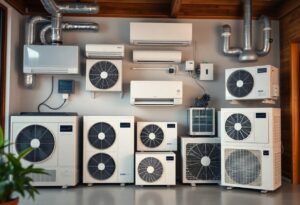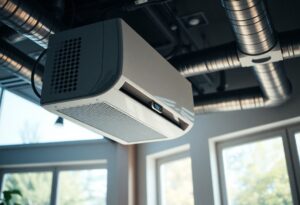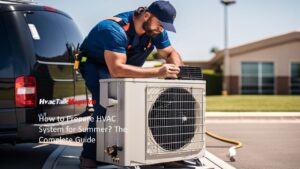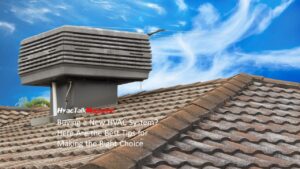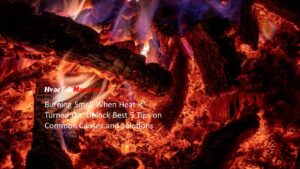The Ultimate Guide to HVAC System Air Conditioning Filters: What You Need to Know
Maintaining a healthy and efficient home environment begins with choosing the right HVAC system air conditioning filters. Air conditioning filters play a critical role in improving indoor air quality, enhancing system efficiency, and protecting both your home and your health. In this ultimate guide to HVAC system air conditioning filters, we’ll explore the different types of air conditioning filters available, how to determine the best one for your home and the consequences of using the wrong filter.
TradesmanCE Kentucky Multi Trade Continuing Education Course
KY Project Management and Safety – 6-hour course – approved for Kentucky electricians, plumbers, and HVAC technicians by the Kentucky Dept. of Housing and Building. Take 10% off with “DEAL22” coupon code.
TradesmanCE Kentucky Multi Trade Continuing Education Course
HVAC System Air Conditioning Filters
Different Types of Air Conditioning Filters
1. Fiberglass Filters
Overview: These are the most basic and inexpensive types of filters. They consist of layered fiberglass fibers and are typically disposable.
Pros:
- Low cost
- Good for basic protection
Cons:
- Low efficiency in capturing small particles
- Need frequent replacement
2. Pleated Filters
Overview: Pleated filters are made from polyester or cotton paper, and folded into pleats to increase the surface area for trapping particles.
Pros:
- Better at capturing small particles compared to fiberglass filters
- Available in various MERV ratings
Cons:
- Slightly more expensive than fiberglass filters
- It may restrict airflow if not changed regularly
3. HEPA Filters
Overview: High-efficiency particulate Air (HEPA) filters are designed to capture 99.97% of particles as small as 0.3 microns.
Pros:
- Superior filtration, ideal for people with allergies or respiratory issues
- Excellent at capturing dust, pollen, mold, and other contaminants
Cons:
- Can be expensive
- Not compatible with all HVAC systems due to high airflow resistance
4. Electrostatic Filters
Overview: These filters use an electrostatic charge to attract and hold airborne particles. They are available in both disposable and washable forms.
Pros:
- Effective at capturing small particles
- Washable versions are reusable, reducing long-term costs
Cons:
- The initial cost is higher
- Washable filters require regular cleaning and maintenance
5. Activated Carbon Filters
Overview: These filters contain activated carbon that can remove odors, gases, and chemical vapors in addition to particulate matter.
Pros:
- Effective at removing odors and VOCs (volatile organic compounds)
- Can be combined with other filter types for enhanced filtration
Cons:
- Do not capture particulate matter as effectively as other filter types
- Need frequent replacement to maintain effectiveness
How to Choose the Best Filter for Your Home: HVAC system air conditioning filters:
1. Understand MERV Ratings
Minimum Efficiency Reporting Value (MERV) ratings indicate a filter’s ability to capture particles of different sizes. The higher the MERV rating, the more particles the filter can capture.
- MERV 1-4: Basic filtration, suitable for residential use where air quality is not a primary concern.
- MERV 5-8: Better filtration, capturing dust, pollen, and mold spores. Good for most homes.
- MERV 9-12: High filtration, ideal for homes with pets, smokers, or allergy sufferers.
- MERV 13-16: Superior filtration, used in hospitals and cleanrooms.
2. Consider Your Household Needs
- Allergies and Asthma: If anyone in your home suffers from allergies or asthma, a higher MERV rating (at least MERV 11) or a HEPA filter is recommended.
- Pets: Homes with pets may benefit from a filter with a MERV rating of 8-12 to capture pet dander.
- Odors: To eliminate odors, consider an activated carbon filter.
3. Check HVAC System Compatibility
Ensure that the filter you choose is compatible with your HVAC system. High-efficiency filters like HEPA may restrict airflow and are not suitable for all systems. Consult your HVAC manual or a professional to determine the best filter for your system.
Tip of the Day
Ensure clean, fresh air in your home with high-quality HVAC system air conditioning filters! Improve your indoor air quality and maintain efficient system performance.
👉 Shop now and replace your HVAC filters for a healthier home environment. Breathe easier and enhance your comfort today!
4. Budget and Maintenance
Consider the cost of the filter and how often it needs to be replaced. While some filters are cheaper upfront, they may need to be replaced more frequently, increasing long-term costs.
HVAC system air conditioning filters
TradesmanCE Kansas HVAC Continuing Education 100% Online
We provide a comprehensive 12-hour renewal package for Kansas HVAC licensees. Our Kansas CE courses range from 2 to 12 hours and are approved by the Kansas Mechanical Trades Review Board. Enjoy a 10% discount on any course with the coupon code “DEAL22.”
TradesmanCE Kansas HVAC Continuing Education 100% Online
Consequences of Using the Wrong Air Conditioning Filter: HVAC system air conditioning filters
1. Reduced Airflow and Efficiency
Using a filter that is not compatible with your HVAC system can restrict airflow, causing your system to work harder and less efficiently. This can lead to higher energy bills and increased wear and tear on your system.
2. Poor Indoor Air Quality
A filter with a low MERV rating or one that is not suitable for your specific needs will not effectively capture airborne contaminants. This can lead to poor indoor air quality, exacerbating allergies and respiratory issues.
3. System Damage
Filters that are too restrictive can cause your HVAC system to overheat and potentially fail. Conversely, filters that are too loose may allow dust and debris to accumulate on system components, leading to damage and costly repairs.
4. Increased Maintenance and Costs
Using the wrong filter can increase the frequency of necessary maintenance and lead to higher overall costs. A filter that clogs quickly will need to be replaced more often, and a system that is not running efficiently will require more frequent servicing.
Conclusion: HVAC system air conditioning filters
Choosing the right HVAC system air conditioning filters is essential for maintaining good indoor air quality, enhancing system efficiency, and protecting your home and health. By understanding the different types of filters, how to select the best one for your needs, and the potential consequences of using the wrong filter, you can make informed decisions that will keep your home comfortable and your HVAC system running smoothly.
Discover the perfect energy-efficient heating solution for your home today, and enjoy the benefits of cost-effective HVAC system air conditioning filters with reliable warmth all winter long.
Follow Us on Google Chrome
- To get started, switch to Google Chrome Browser
- Already on our site
- Top right, tap the 3 dots
- Bottom right, tap follow
- You are done.
Learn more and join our mailing list.
This post has been written by Team HVAC Talk Magazine. Stay informed and connected with the latest in HVAC—join us for expert advice, troubleshooting tips, and news updates. Don’t miss out, follow us now! #HVACExperts #HVACTips #StayInformed #HVACProTalk
